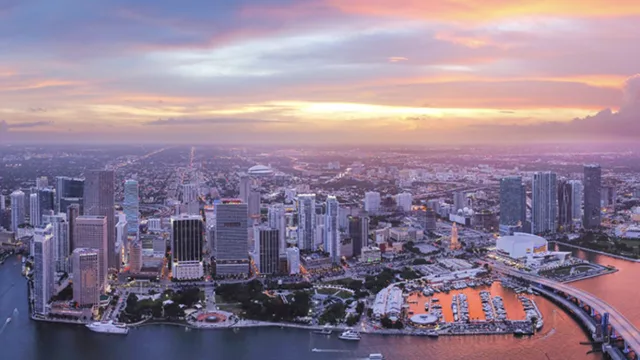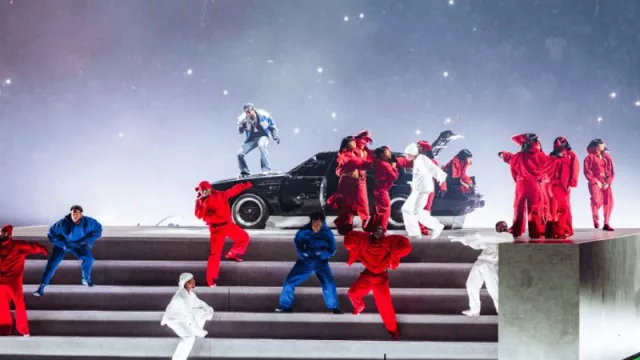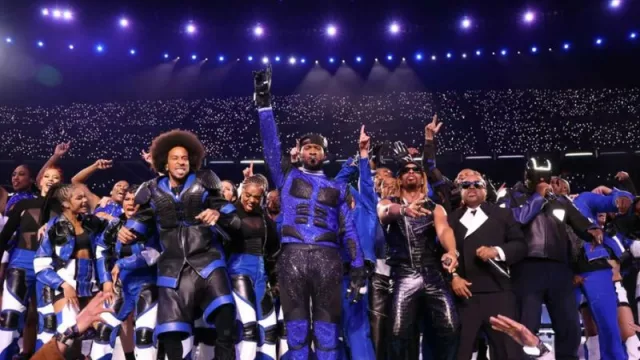Throughout its history, Miami has magnetically attracted Latin American immigrants in search of a secure place to invest and settle. Unlike the media's portrayal of immigration at the southern border, the influx of Latin Americans into Miami has been marked by economic investment and the pursuit of professional opportunities. Armed with work permits and high levels of education, these immigrants have contributed to the creation of an affluent community that sees Miami as a perfect blend of American advantages and the familiarity of their original culture.
The Anglolatin culture, which has come to life on the sunlit streets of Miami, is characterized by its ability to harmoniously blend Latino and Anglo elements. Spanish has become a linguistic and cultural bridge, and its everyday use reflects the coexistence of both cultures. This phenomenon has given rise to a new language that seamlessly combines English and Spanish terms, creating a unique connection between Anglo-speaking and Latin American communities.
Analyzing the Reasons Behind Miami's New Economic and Cultural Lighthouse
-
A Mosaic of Opportunities and Cultural Diversity
Miami's cultural diversity mirrors the power of immigration to enrich and transform a city. The Latinx community in Miami has grown to represent nearly 70% of the population, turning it into a city where Spanish is spoken in nearly every corner. This cultural coexistence fosters an environment conducive to cultural exchange and economic growth.
From Colombian entrepreneurs to Argentine innovators, Miami has attracted a wide range of professionals from Latin America seeking a favorable business environment. The statistics speak for themselves: around 25% of businesses in the state of Florida are owned by Latin American immigrants. This diaspora of entrepreneurs has reshaped Miami's economic landscape, turning it into a hub of innovation and job creation.
-
Messi and the definitive boost to the Anglolatin Identity
Lionel Messi's arrival at Inter Miami has transcended the realm of sports. This event has further solidified Miami's position as the capital of Anglolatin culture and an economic and cultural epicenter in the region. Florida Governor Ron DeSantis, recognizing the significance of the Latino vote, has seen Messi as a link to the 62 million Latinos in the United States, leveraging his popularity as a political asset.
Messi's decision to join Inter Miami also underscores the importance of soccer as a catalyst for Anglolatin culture. Sports bring diverse communities together and promote cultural integration. Miami, acting as a bridge between Latin America and the United States, finds in soccer a powerful tool for cohesion and shared identity.
Messi's presence not only enhances Miami's sports appeal but also symbolizes the city's magnetic pull for investments, tourism, and professional opportunities. The Messi phenomenon isn't just a boost for Inter Miami; it elevates Miami's status as the capital of Anglolatin culture and a center of influence in the region.
Miami has undergone a remarkable metamorphosis, transitioning from a tourist destination to a cultural and economic epicenter that melds the richness of Latin and Anglo cultures. The creation of Anglolatin culture exemplifies how diversity can be a driver of progress and success. Messi's arrival has acted as the final catalyst propelling Miami into a new dimension of global influence and a shared identity that transcends linguistic and geographic boundaries.
-
Differential Growth in All Sectors: The Capital of Capital
Latin Economy in Miami: The city has positioned itself as a significant economic and financial center for Latin America. Its geographic proximity, combined with historical and cultural ties to the region, has attracted foreign investments and commercial transactions. Miami hosts numerous companies and banks specializing in serving Latin American markets.
Foreign Investments and Real Estate: Miami's real estate market has magnetized Latin American investors. Many Latin Americans have purchased properties in the city as a refuge for their capital, seeking stability and investment opportunities. This has contributed to economic growth and urban development.
Tourism: Known for its allure, Miami's expanding beaches, nightlife, gastronomic festivals, and sporting events have made it a popular destination for visitors from Latin America and around the world.
Multilingual Culture: Miami's linguistic diversity sets it apart. Spanish is widely spoken, and many businesses and services operate in both languages. The presence of diverse cultures has enriched the city's artistic, musical, and culinary scenes. The fusion of Anglo-Saxon and Latin cultures has given rise to a unique Miami culture blending elements of both traditions.
Cultural and Commercial Connections: Miami's Latin communities have fostered cultural and commercial ties between the city and Latin America. Cultural events, community organizations, and family bonds have helped maintain strong connections between the two regions.
Innovation and Entrepreneurship: Miami's economic growth has also been driven by the influx of entrepreneurs and startups from Latin America seeking to leverage the city's business opportunities and infrastructure.
Financial Hub: Miami has evolved into a significant financial and investment hub for Latin America.
Real Estate Market: Miami's real estate market has attracted investors from Latin America due to its stability and investment opportunities, with growth rates comparable only to the astonishing Dubai.
Entertainment: Florida and Miami lead the global entertainment industry, contributing to the city's economic and cultural growth.
Miami Tech: While not yet the technology capital of the West, Silicon Beach is beginning to rival Silicon Valley, and Miami is also emerging as a contender for the startup capital alongside São Paulo.
Miami's unique growth compared to other US cities stems from its cultural diversity and strategic position as a bridge between Latin America and the United States. The city has become a melting pot of cultures, where the influence of Latin America blends with Anglo-Saxon elements, creating a distinctive and vibrant culture.












Tu opinión enriquece este artículo: